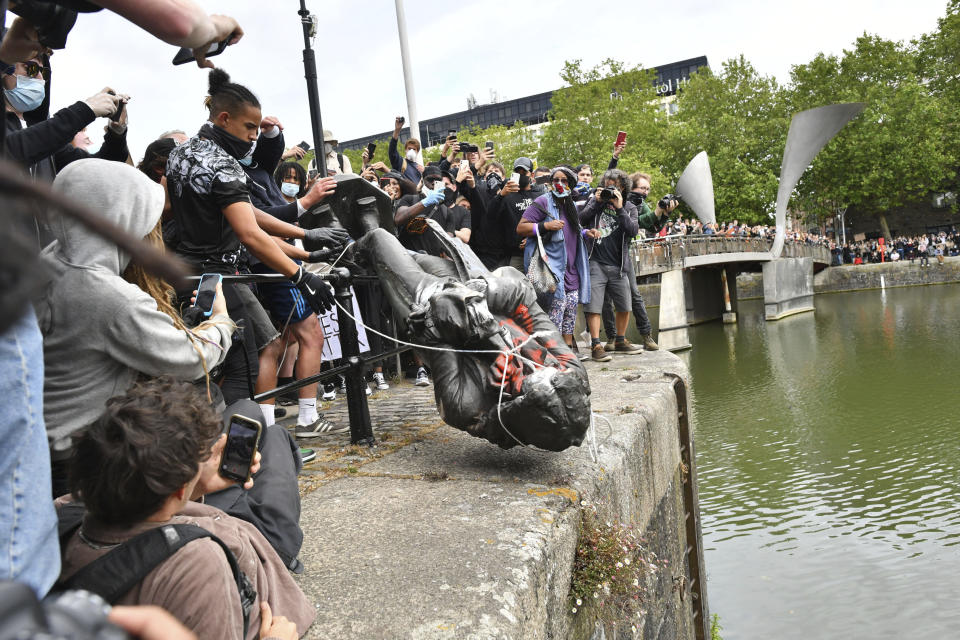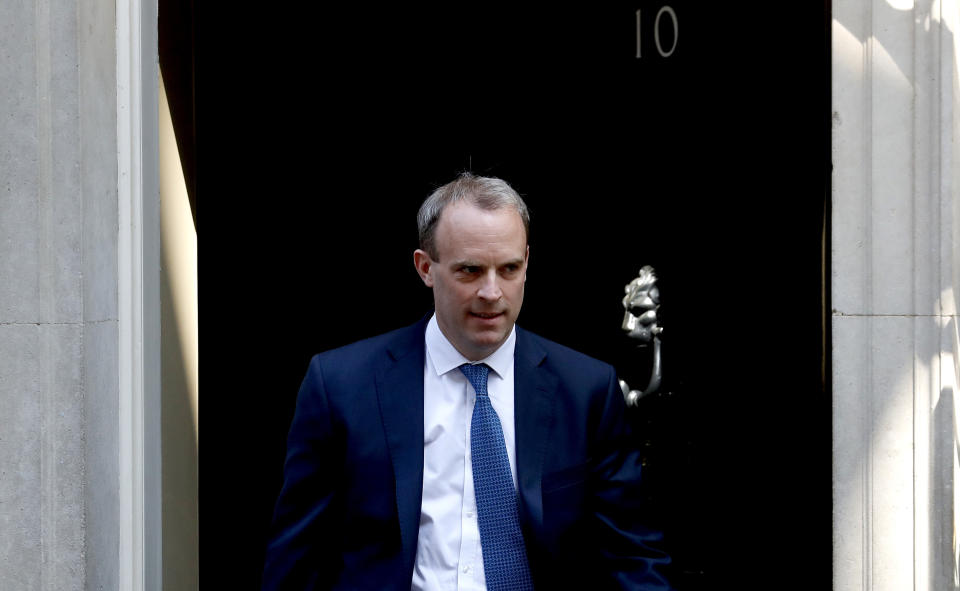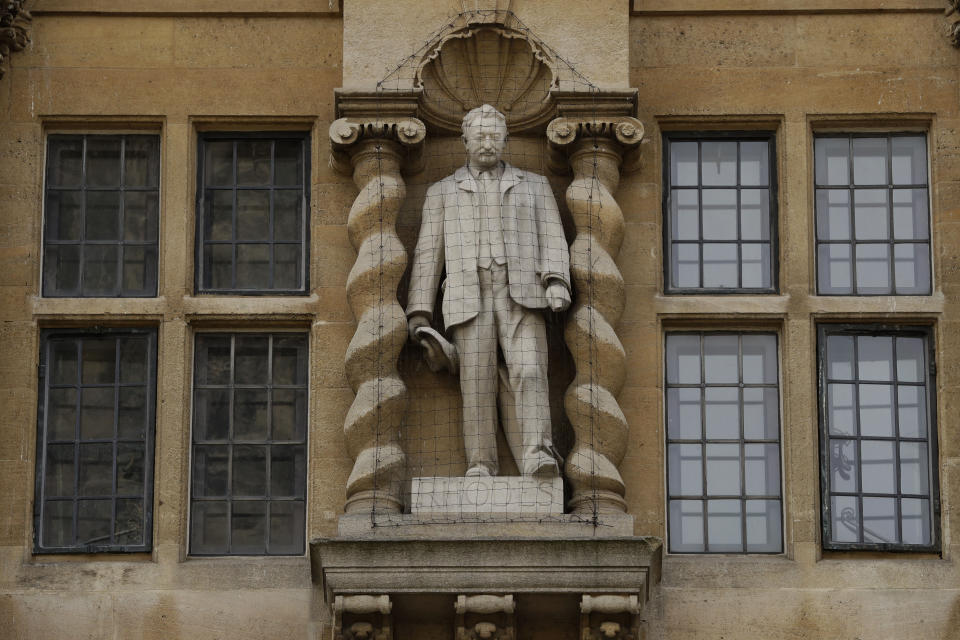UK should not 'airbrush' its history, but 'update' it, Dominic Raab says

As the debate around controversial statues continues, foreign secretary Dominic Raab said the UK should be careful not to "airbrush" its history.
Speaking to BBC Radio 4’s Today programme, Raab said that the UK should instead “update” its history, following a demand for some statues to be removed for their connections to slavery and racism.
He said: "I think we should be very careful not to airbrush our history but to use statues and monuments as a point of debate.
"But one thing I do accept is that people will think that we ought to keep updating our history, and make sure the symbols reflect the spirit and the values of the age.”

His comments come after the removal of several statues in the UK – including slave owners Edward Colston and Robert Milligan – following the recent Black Lives Matter protests.
A statue of Scouts founder Robert Baden-Powell in Poole, Dorset, was defended by locals last week after it was targeted for removal by protesters.
Meanwhile, an Oxford University college's indication that it wishes to remove a controversial statue of Cecil Rhodes has been hailed as the "right decision" and met with "cautious" optimism from campaigners.
A statement issued by Oriel College on Wednesday night said the governing body had voted in favour of launching an independent inquiry into the issues surrounding the monument to the British imperialist.
It said it "expressed their wish to remove the statue of Cecil Rhodes and the King Edward Street Plaque" to the commission.
It follows a long-running campaign demanding the removal of the statue, which has gained renewed attention in recent weeks.
Sizwe Mpofu-Walsh, a founding member of the Rhodes Must Fall campaign, said there is "a sense of guarded jubilation" among activists who "feel greatly vindicated”.

Speaking to BBC Radio 4's Today programme on Thursday morning, he claimed that Oriel College had "acted in bad faith before" so campaigners would now work to "ensure it follows through on that wish" and provides "clarity" on the commission.
Mpofu-Walsh, now a postdoctoral fellow in South Africa, said the statue campaign also covered wider debates on curriculum and the under-representation of black students at Oxford University.
Demonstrations have taken place outside Oriel College, calling for the statue to be removed from the High Street entrance of the building, as well as anti-racism protests following the death of George Floyd in the US.

 Yahoo News
Yahoo News 
